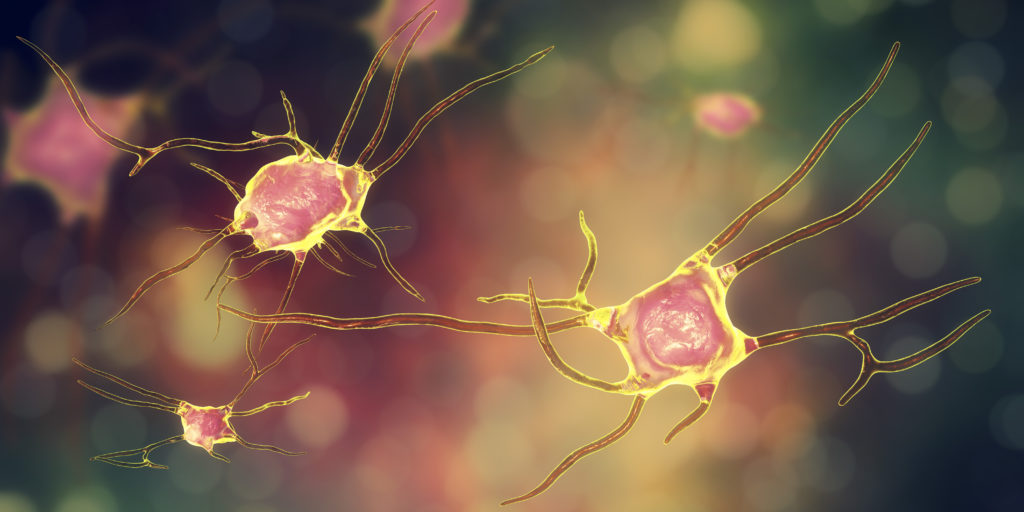Quick Hits
Daily brief research updates from the cognitive sciences

Ok, I know we all know that exercise is good for us. Many of you also know that I have reported multiple times over the years on the many positive impacts exercise has on our brains and one of these is in building new brain cells.
Yup, we can grow new brain cells – it was long thought that our brains were fixed with some flexibility in how our brain cells wire together and potentially rewire. However, over the years neurogenesis, the birth of new brain cells has been seen. Granted this is in limited areas of the brain – so don’t get too excited.
It is also know that exercise increases the production of new brain cells (in animal models) – and this could be as simple as walking. But why and how this happens was a mystery and this is where this piece of research published din June 2023 comes in because it shows how this can happen.
If you’re a sports person you may have heard of lactate – often in the form of lactic acid which is the by product of short bursts of intensive exercise that gives you that heavy “pumped” feeling in your muscles and can also lead to lack of coordination (the mechanisms of this has also been misunderstood to the lay sports person but that’s not for here – hint it’s not the “acid” that causes the problem).
As I said lactate is a by product of exercise and metabolism – that is the old story but we also know that lactate can be an energy source in itself and it is known that lactate is also an important signalling molecule in the nervous system i.e. triggers other cells to activate or not. And this signalling seems to be involved in brain cell growth and formation of new cells. The precise mechanisms, however, was unknown – enter Yidan Xu working in the team of Ryoichi Nagatomi at the University of Tohuku University in Japan.
They examined the role of lactate in the central nervous system and particularly in combination with a protein called NDRG3. This mediates gene regulation and in their experiments they showed NDRG3 is modulated by lactate stimulating plasticity and growth of new cells when present (that’s a very simplified summary).
So there you have it – not only do we know exercise is good for health, and good for your brain, we now know that lactate, that is a by product of exercise, is one of the factors that influences your genetic activation to build and grow brain cells.
If that’s not a good reason to exercise I don’t know what is.

Andy Habermacher
Andy is author of leading brains Review, Neuroleadership, and multiple other books. He has been intensively involved in writing and research into neuroleadership and is considered one of Europe’s leading experts. He is also a well-known public speaker, speaking on the brain and human behaviour.
Andy is also a masters athlete (middle distance running) and competes regularly at international competitions (and holds a few national records in his age category).
References
Yidan Xu, Joji Kusuyama, Shion Osana, Satayuki Matsuhashi, Longfei Li, Hiroaki Takada, Hitoshi Inada, Ryoichi Nagatomi.
Lactate promotes neuronal differentiation of SH-SY5Y cells by lactate-responsive gene sets through NDRG3-dependent and -independent manners.
Journal of Biological Chemistry, 2023; 299 (6): 104802
DOI: 10.1016/j.jbc.2023.104802
More Quick Hits
Behaviour at eight helps predict midlife health behaviours
A long-term study in Finland has tracked children from the age of eight until the age of 50 and a new analysis of the data, just published, has looked at some of the correlations between socioemotional behaviour in childhood and later life achievement and health...
Psychedelics and consciousness
Psychedelics change our conscious experience of the world – that is part of their attraction. Now a new study out of John Hopkins Medicine has analysed data on attributions of consciousness to other animals and innate objects by those using psychedelics and how this...
Lower smartphone usage increases wellbeing
So much has been said about smartphone usage in modern times. This ranges from some who say that they are destroying our brain to others who see they benefit our cognition by outsourcing cognitive heavy tasks like remembering lists of phone numbers – thereby freeing...
Modesty preferred for cooperative teams
In an age where it appears that many people are vying for self-esteem especially through social media, this research is interesting. Particularly in business contexts where cooperation is king. Research has previously shown that appearing to be wealthy increases...
Poverty shrinks babies’ brains
Quick HitsDaily brief research updates from the cognitive sciences couple of studies have just been released which look at the brains of newborns and young babies. The results are worrying for any society. Brain scans of newborn babies from...
Babies born with five from seven functional brain networks
In the 1950s the blank slate theory was the most prominent theory ascribed to babies. They are born blank slates and then their experiences allow them to develop their networks thoughts, associations, etc., and just about everything else. Though this theory is long...






